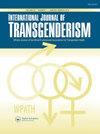Supporting families of transgender children/youth: Parents speak on their experiences, identity, and views
Q1 Social Sciences
引用次数: 64
Abstract
ABSTRACT Background: Transgender children/youth demonstrate the best possibility for resilience and positive mental health when they are part of an affirming and supportive family. To optimize families in supporting transgender children/youth, parents/caregivers need to be supported. Transgender children/youth and their families regularly navigate a myriad of challenges through society. Aims: Within the extant literature on transgender children and youth, relatively little attention is focused on the experiences of parents/caregivers and how their close family relationships are affected. The present qualitative study addresses this gap in knowledge through its exploration of the experiences, identities, and views of parents/caregivers of transgender children/youth. Method: The study is longitudinal and this article represents the first wave. Fourteen parents of 12 transgender children/youth, aged 6–17, participated in in-depth semistructured interviews. Participants were recruited via social media and at an on-site conference for transgender youth and their families. All children/youth had socially transitioned. Those who were eligible for puberty suppression and/or hormone therapy were receiving those. The interviews were inductively coded for themes by two coders using the constant comparative method. Results: Participants' reports on their experiences yielded three themes: (1) transgender issues as the family's focus; (2) proactivity, child-focused: preemptive actions to prevent adverse consequences; and (3) self-care. These themes included subthemes on effective coping strategies to mitigate struggles. Three themes related to participants' identity and views emerged: (1) identity reformation, (2) self-evaluation, and (3) views of future. These themes included subthemes that reflected how participants viewed themselves, their child, and the future. Discussion: A transgender identity in one family member affects all household members. Parents/guardians may experience guilt and self-doubt over decisions. Factors that may improve outcomes with extended family and schools include families' preemptive dissemination of information on transgender identities and explicating expectations of respect and nonintrusion. Ingrained traditions may force life-altering decisions.支持跨性别儿童/青少年的家庭:父母谈论他们的经历、身份和观点
背景:当跨性别儿童/青少年处于一个肯定和支持的家庭中时,他们最有可能表现出适应力和积极的心理健康。为了优化家庭对跨性别儿童/青少年的支持,父母/照顾者需要得到支持。跨性别儿童/青少年和他们的家庭经常在社会中面对无数的挑战。目的:在现有的关于跨性别儿童和青少年的文献中,相对较少的关注集中在父母/照顾者的经历以及他们的亲密家庭关系如何受到影响。本定性研究通过对跨性别儿童/青少年的父母/照顾者的经历、身份和观点的探索来解决这一知识差距。方法:研究是纵向的,本文代表了第一波。12名年龄在6-17岁的跨性别儿童/青少年的14位家长参与了深度半结构化访谈。参与者是通过社交媒体和跨性别青年及其家人的现场会议招募的。所有儿童/青年都已社会过渡。那些有资格接受青春期抑制和/或激素治疗的人正在接受这些治疗。访谈由两名编码员采用恒常比较法对主题进行归纳编码。结果:参与者对其经历的报告产生了三个主题:(1)跨性别问题是家庭关注的焦点;(2)主动性,以儿童为中心:先发制人,防止不良后果;(3)自我照顾。这些主题包括关于减轻斗争的有效应对策略的分主题。与参与者身份和观点相关的三个主题是:(1)身份改革,(2)自我评价,(3)对未来的看法。这些主题包括反映参与者如何看待自己、孩子和未来的次级主题。讨论:一个家庭成员的跨性别身份会影响所有家庭成员。父母/监护人可能会对决定感到内疚和自我怀疑。在大家庭和学校中,可能改善结果的因素包括家庭先发制人地传播有关跨性别身份的信息,并阐明对尊重和不侵犯的期望。根深蒂固的传统可能迫使你做出改变人生的决定。
本文章由计算机程序翻译,如有差异,请以英文原文为准。
求助全文
约1分钟内获得全文
求助全文
来源期刊

International Journal of Transgenderism
Social Sciences-Gender Studies
CiteScore
5.10
自引率
0.00%
发文量
0
期刊介绍:
International Journal of Transgenderism, together with its partner organization the World Professional Association for Transgender Health (WPATH), offers an international, multidisciplinary scholarly forum for publication in the field of transgender health in its broadest sense for academics, practitioners, policy makers, and the general population.
The journal welcomes contributions from a range of disciplines, such as:
Endocrinology
Surgery
Obstetrics and Gynaecology
Psychiatry
Psychology
Speech and language therapy
Sexual medicine
Sexology
Family therapy
Public health
Sociology
Counselling
Law
Medical ethics.
 求助内容:
求助内容: 应助结果提醒方式:
应助结果提醒方式:


